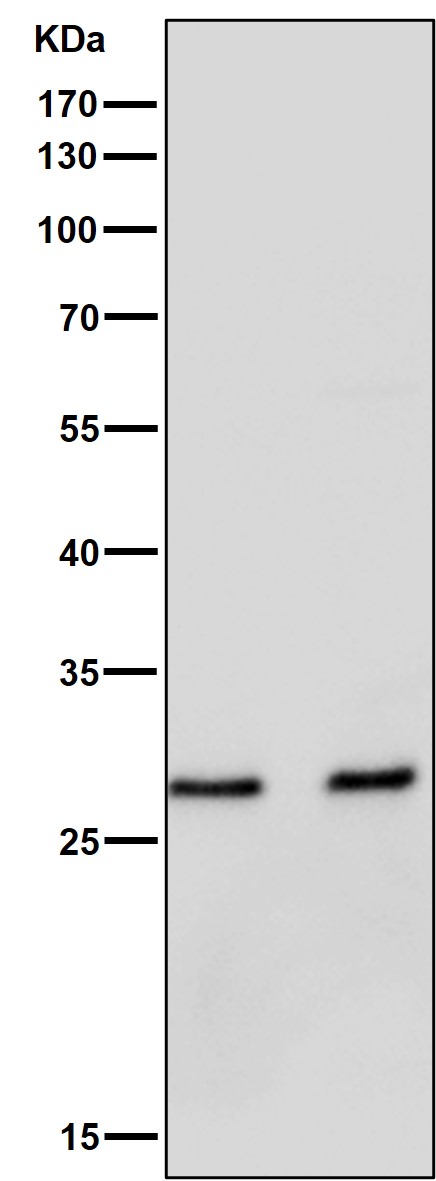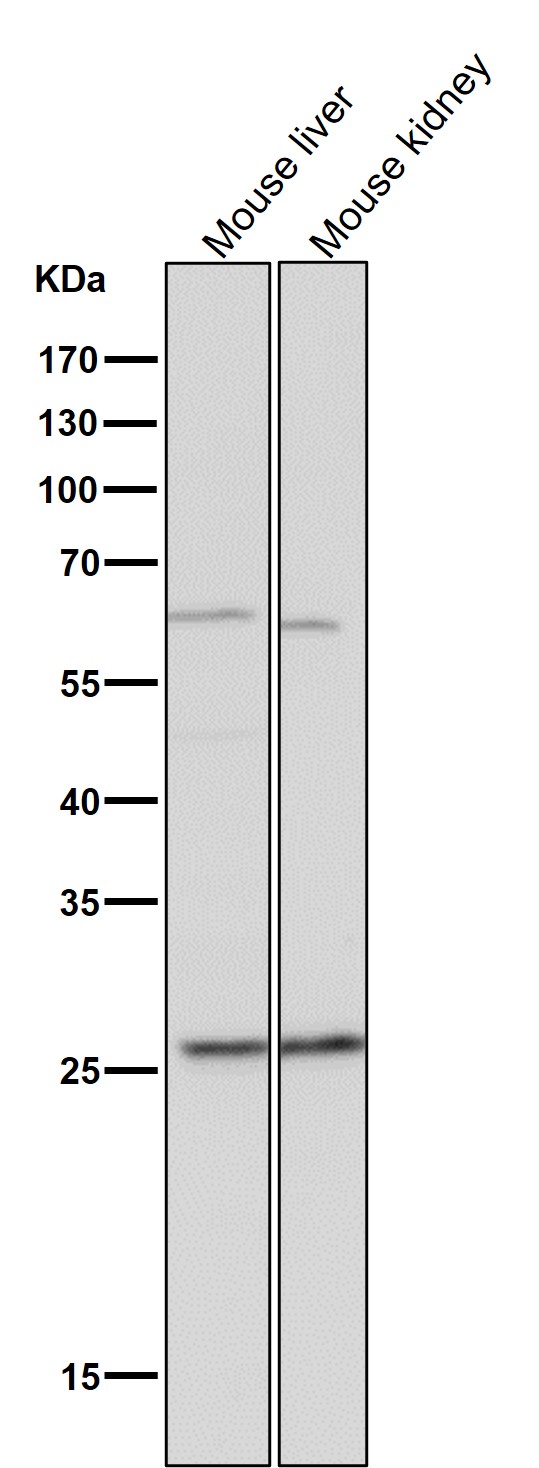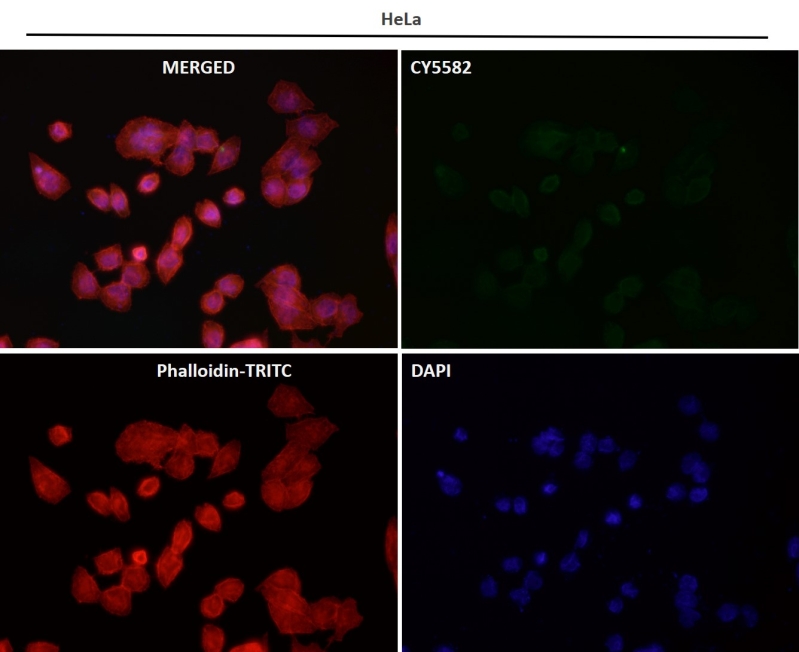



| WB | 1/1000-1/2000 | Human,Mouse,Rat |
| IF | 咨询技术 | Human,Mouse,Rat |
| IHC | IHC:1/100-1/200;IHF:1/50-1/200 | Human,Mouse,Rat |
| ICC | 1/50-1/200 | Human,Mouse,Rat |
| FCM | 1/20-1/100 | Human,Mouse,Rat |
| Elisa | 咨询技术 | Human,Mouse,Rat |
| Aliases | BCL2A1; ACC-1; ACC-2; Bcl-2-like protein 5; Bcl-2-related protein A1; BCL2-related protein A1; BFL1; Bcl2-L-5; BCL2L5; GRS; HBPA1; Protein BFL-1; Protein GRS;;Bcl 2 A1 |
| WB Predicted band size | Calculated MW: 20 kDa ; Observed MW: 27 kDa |
| Host/Isotype | Rabbit IgG |
| Antibody Type | Primary antibody |
| Storage | Store at 4°C short term. Aliquot and store at -20°C long term. Avoid freeze/thaw cycles. |
| Species Reactivity | Human,Mouse,Rat |
| Immunogen | A synthesized peptide derived from human Bcl 2 A1 |
| Formulation | Purified antibody in PBS with 0.05% sodium azide,0.05% BSA and 50% glycerol. |
+ +
以下是关于BCL2A1抗体的3篇参考文献示例(内容为虚构示例,仅用于格式参考):
---
1. **文献名称**: *BCL2A1 expression in chemoresistant melanoma and its therapeutic implications*
**作者**: Smith J, et al.
**摘要**: 本研究通过免疫组化及Western blot分析,利用BCL2A1特异性抗体证实了BCL2A1在黑色素瘤患者中的高表达,并发现其过表达与化疗耐药性显著相关,提示其作为潜在治疗靶点。
2. **文献名称**: *BCL2A1 regulates apoptosis in B-cell lymphoma via NF-κB signaling*
**作者**: Lee H, et al.
**摘要**: 通过流式细胞术和抗体介导的蛋白检测,发现BCL2A1通过NF-κB通路抑制B细胞淋巴瘤凋亡,靶向BCL2A1可增强传统化疗药物的敏感性。
3. **文献名称**: *Antibody-based detection of BCL2A1 in inflammatory breast cancer*
**作者**: Garcia R, et al.
**摘要**: 研究利用商业化BCL2A1抗体分析乳腺癌组织样本,发现BCL2A1在炎症性乳腺癌中特异性上调,并与患者预后不良相关,为开发新型抗体疗法提供了依据。
---
如需真实文献,建议通过PubMed或Google Scholar检索关键词“BCL2A1 antibody”或“BCL2A1 function”。
The BCL2A1 antibody is a crucial tool for studying the BCL2A1 protein, a member of the BCL-2 family of apoptosis regulators. BCL2A1 (Bcl-2-related protein A1), also known as BFL-1. is an anti-apoptotic protein that promotes cell survival by inhibiting mitochondrial outer membrane permeabilization, thereby blocking caspase activation. It is primarily expressed in hematopoietic cells and certain cancers, where its overexpression is linked to tumor progression, therapy resistance, and poor prognosis.
BCL2A1 antibodies are widely used in research to detect protein expression levels via techniques like Western blotting, immunohistochemistry (IHC), and flow cytometry. These antibodies help elucidate BCL2A1's role in cancer biology, immune regulation, and diseases like leukemia, lymphoma, and solid tumors. Polyclonal or monoclonal antibodies raised in hosts such as rabbits or mice target specific epitopes, often within conserved regions like the BH1 or BH2 domains.
Studies using BCL2A1 antibodies have revealed its regulation by NF-κB signaling and its interaction with pro-apoptotic proteins like BIM or BAX. In clinical contexts, BCL2A1 expression is explored as a biomarker for therapeutic targeting, particularly in cancers resistant to conventional BCL-2 inhibitors (e.g., venetoclax). Research tools like BCL2A1 antibodies thus contribute to understanding apoptosis mechanisms and developing novel anti-cancer strategies.
×